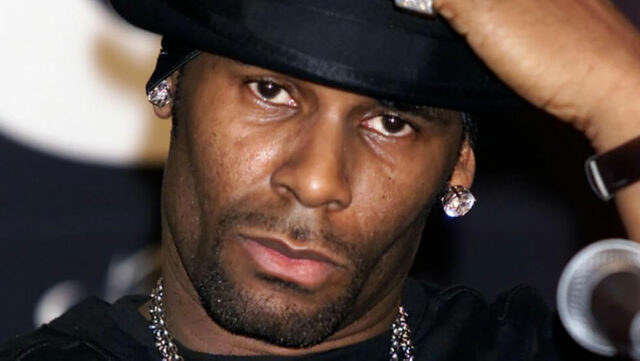OLD CENTRAL BANKERS never die. And often, they don’t fade away either.
Haruhiko Kuroda, the Bank of Japan boss for a decade until 2023, was one such figure who last week declared that Japan “has completely exited deflation.” Having presided over a decade of massive stimulus, his comment is of course self-serving. But with core consumer price rises in January expected to hit 3%, they seem accurate. So why the controversy?
The problem is that the Japanese government, and Prime Minister Shigeru Ishiba in particular, feel differently. When asked for his take on whether Japan suffers from inflation and not its pernicious opposite, Ishiba demurred.
“Japan is not in deflation,” he said, “but it hasn’t been able to completely escape it.”
When Ishiba became prime minister in October, he called for a concentrated three years of policy to ensure deflation is quashed. He’s not only at odds with Kuroda, but also the incumbent at the Bank of Japan, Kazuo Ueda, who agrees Japan is experiencing rising prices.
These days, no one who has been to a Japanese supermarket, where heads of cabbage sell for more over ¥1,000 ($6.50), thinks the threat currently facing Japan is deflation. The tussle against this foe — or the specter of it — was waged off and on by officials for the better part of a generation, with critics contending Japan had become a poster child for seemingly terminal decline. But nothing lasts forever. The last time prices declined was in July 2021, the same month the Tokyo Olympic Games took place, a time the country’s borders were still closed with the nation in the midst of a COVID-19 state of emergency. For almost three years, core consumer prices have not only risen, but have met or exceeded the Bank of Japan’s 2% target. It’s a situation the bank forecasts will continue until at least March 2027.
Of course, there’s good reason to be cautious over taking a possibly premature victory lap (think US President George W. Bush and his infamous “Mission Accomplished” banner). And deflation can truly happen anywhere, as former Federal Reserve chairs Alan Greenspan and Ben Bernanke can testify. By 2003, inflation in the US had been so contained over the prior decade that policymakers fretted it had become too much of a good thing and the risk of a Japan scenario — once considered crazy — needed to be taken seriously. The prospect of falling prices had become the hot topic at the Fed and action was needed.
“We wanted to shut down the possibility of corrosive deflation; we were willing to take the chance that by cutting rates we might foster a bubble, an inflationary boom of some sort, which we would subsequently have to address,” Greenspan wrote in his book The Age of Turbulence.
Months earlier, Bernanke, a Fed governor who would ultimately succeed Greenspan, gave a high-profile speech devoted to making sure deflation didn’t visit America. He thought a pronounced and general decline in prices was unlikely, though it couldn’t be ruled out. Once such a force sets in, he argued, it can be very destructive. Janet Yellen, who followed Bernanke as Fed chief, also spent a lot of time worrying about too-low inflation.
Japan’s past also shows the need for vigilance — it took the country a long time to recognize the problem in the first place, with an official “declaration of deflation” arriving only in 2001 after an extended period of declining prices.
That has perhaps created a fear over being too blasé on deflation. But the mistake the government risks repeating is being out of touch with the economy — and ignoring the issues facing everyday voters and consumers, who these days are struggling with higher grocery and utility bills.
While continuing to be cautious about the future, Japan should admit that at least for now it has won the fight. Otherwise, deflation risks becoming another of the interminable debates that drag on much too long in the country — from the future role of nuclear energy, to the use of surnames for married couples, to the current, excruciating debate over whether an income tax exemption should be merely modest, or really modest.
That these issues are still being chewed over when the broader world is moving at light speed — from the exponential growth of AI capability to the flurry of executive orders from the Trump administration — is particularly galling.
We don’t buy the argument, advanced by some, that the threat of deflation is needed as a fig leaf for spending. Ishiba can easily argue that while price drops have been banished, low-to-negative growth hasn’t. In contrast to Elon Musk’s thirst for cutting government outlay, there is little public appetite in Japan for austerity; the Democratic Party for the People, the surprise group in last year’s election that sucked votes away from the ruling party, advocates for increasing take-home pay and lowering taxes.
Perhaps Ishiba is trying to set himself up for victory later — declare deflation is still a problem, then at a suitable moment, say it has been slain. But the problem there is twofold — no one really buys that deflation is an issue these days, and despite his successful visit to the US, it still seems unlikely the prime minister will be around in three years’ time to take credit.
So while his reluctance to embrace Japan’s contemporary economy is grounded in harsh experience, it’s well past time for the political elite to move on. If you have a win, regardless of its provenance, take it. It’s good advice for any leader — and dare we say it, some useful forward guidance.
BLOOMBERG OPINION















